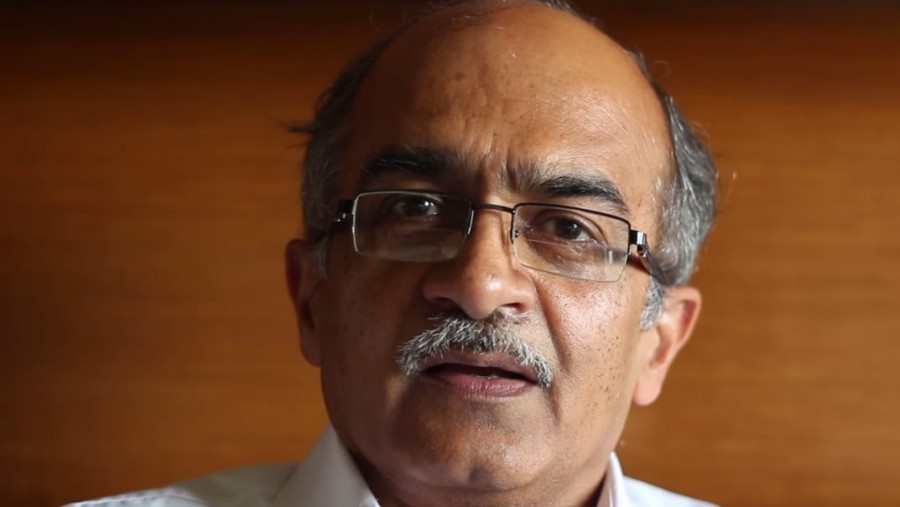The Supreme Court has come down heavily on activist lawyer Prashant Bhushan, ruling that he had damaged “the dignity and authority of the institution” by two tweets and was therefore guilty of contempt.
The court will announce its sentence on August 20.
The bench, led by Justice Arun Mishra, said one tweet referring to the Chief Justice of India Sharad A. Bobde on a Harley Davidson motorbike damaged the reputation of both the court and the chief justice. It added: “Fearless and impartial courts of justice are the bulwark of a healthy democracy and the confidence in them cannot be permitted to be impaired by malicious attacks.”
Unusually, there was no indication about who had written the 108-page judgement delivered by the three-judge bench.
The court also ripped into Bhushan’s second tweet which had criticised the role of the last four chief justices of India and accused them of weakening democracy by their actions. The tweet, the judges said, “give an impression, that the Supreme Court has a particular role in the destruction of democracy in the last six years and that the last four CJIs had a more particular role in the same.”
Bhushan’s lawyer Dushyant Dave argued during the hearing that both tweets were made in good faith and with a view to upholding the reputation of the judiciary. Dave declined to comment on the judgement, saying: “I won’t speak on it now.”
During the hearing, Dave had gone at length into the reasons why Bhushan was concerned about the court’s reputation such as sexual harassment charges against former Chief Justice of India Ranjan Gogoi and the manner in which the hearing on the charges against him had been carried out. Dave also argued that the comments about the judges had been in relation to their personal capacities and not against the court itself and therefore could not be treated as contempt of court.
On this assertion, the court commented: “The tweet has the effect of destabilising the very foundation of this important pillar of Indian democracy. The tweet clearly tends to give an impression that the Supreme Court……has in the last six years played a vital role in destruction of the Indian democracy. There is no manner of doubt that the tweet tends to shake the public confidence in the institution of the judiciary.”
On the tweet about Bobde on the motorcycle, the judges said: “The impression that the said part of the tweet attempts to give to a layman is, that the CJI is riding a 50 lakh motorcycle belonging to a BJP leader at Raj Bhavan, Nagpur without a mask or helmet, at a time when he has kept the SC in lockdown mode denying citizens their fundamental right to access justice.”
The court added: “In our considered view, the said tweet undermines the dignity and authority of the institution of the Supreme Court of India and the CJI and directly affronts the majesty of the law.”
It added: “Making such (a) wild allegation, thereby giving an impression that the CJI is enjoying riding an expensive bike while he keeps the SC in lockdown mode and thereby denying citizens their fundamental right to access justice, is undoubtedly false, malicious and scandalous.”
The court also argued that if Supreme Court judges were not protected from attack there might be “a possibility of the judges getting an impression that they may not stand protected from malicious attacks, when the Supreme Court has failed to protect itself from malicious insinuations, cannot be ruled out.”
Turning down Dave’s request for magnanimity, the judges said: “Magnanimity cannot be stretched to such an extent, which may amount to weakness in dealing with a malicious, scurrilous, calculated 104 attack on the very foundation of the institution of the judiciary and thereby damaging the very foundation of the democracy.”
After giving short shrift to the key arguments, the three judges, in their judgement, also shot down a plea that the correct procedure for taking up a contempt case had not been followed and that it had to be routed via the attorney general. The court rejected this argument outright, saying that the court had full powers to take up the case suo motu.










